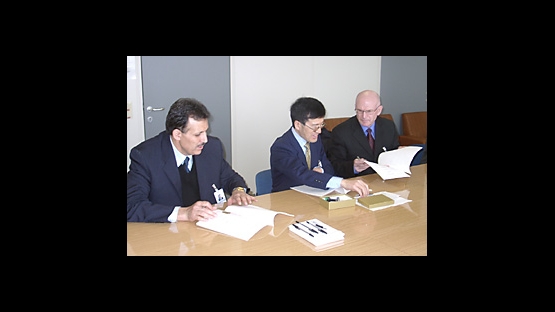The IAEA this week assisted Libyan authorities with the removal of weapons-grade highly enriched uranium (HEU) stored at a research reactor facility on the outskirts of Tripoli. IAEA inspectors monitored and verified the packing of the HEU for transport and removal on 8 March.
The HEU, 80% enriched and in the form of fresh fuel, is in fuel assemblies containing about 13 kg of fissile uranium-235, as well as about 3 kg of uranium. It was airlifted from the Libyan Arab Jamahiriya to the Russian Federation. HEU is a safeguarded fissile material that fuels nuclear reactors for research and electricity production but can also be processed and used to make a nuclear weapon.
Russia agreed to take back the HEU and was the original supplier in the 1980s for the 10-megawatt reactor and critical facility at the Tajoura Nuclear Research Centre near Tripoli. Russia intends to blend down the HEU into low-enriched uranium (LEU), making it unsuitable for a nuclear weapon.
The $700,000 fuel-removal was funded by the United States Department of Energy under a cooperative US-Russia-IAEA programme called the Tripartite Initiative, which addresses safety and proliferation risks. The Tripartite Initiative returns fresh and spent fuel from Russian designed reactors abroad.


